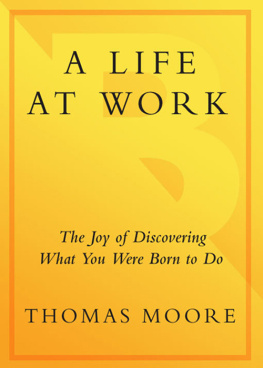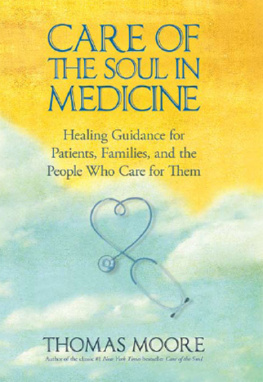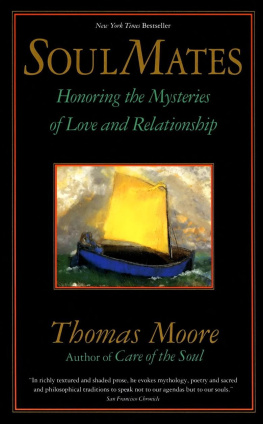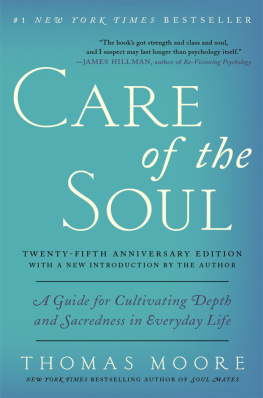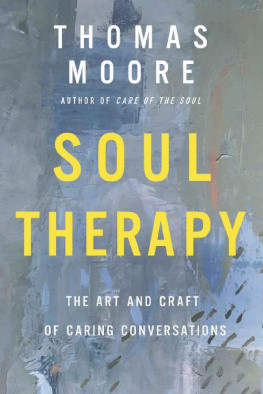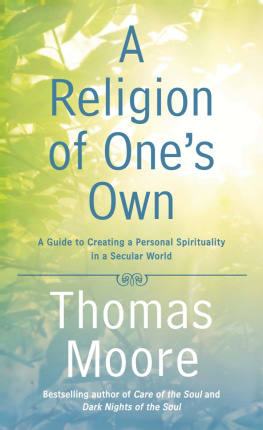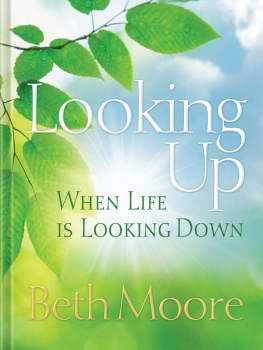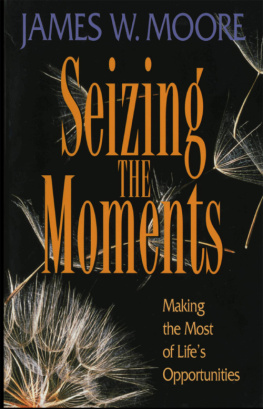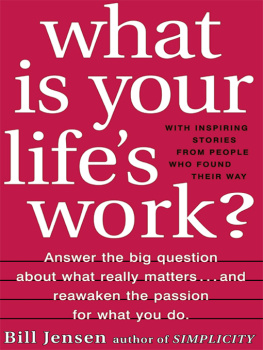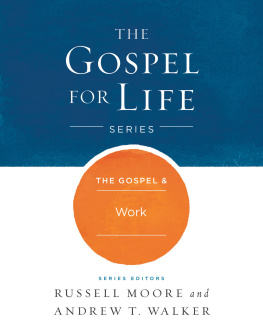Contents
Landmarks
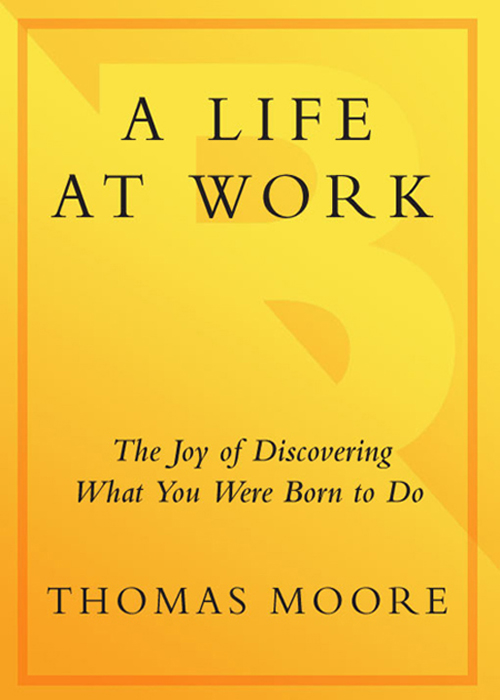
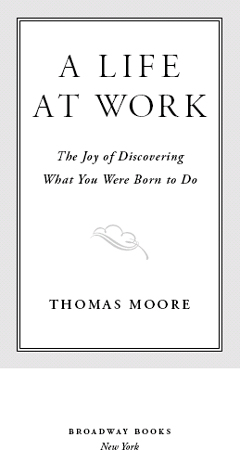
CONTENTS

TO BEN MOORE,
A BORN TEACHER, AN EXTRAORDINARY FATHER,
AND A MAGNIFICENT HUMAN BEING
Every person, in the course of his life, must buildstarting with the natural territory of his own selfa work, an opus, into which something enters from all the elements of the earth. He makes his own soul throughout all his earthly days; and at the same time he collaborates in another work, in another opus, which infinitely transcends, while at the same time it narrowly determines, the perspectives of his individual achievement: the completing of the world.
Pierre Teilhard de Chardin, The Divine Milieu
PREFACE
ALCHEMY: THE OPUS OF THE SOUL

J ust three hundred years ago alchemists like Englands John Dee tended a small furnace in their smoky, cluttered laboratory watching closely and patiently for signs of progress. They were seeking medicines, elixirs, and the secret of eternal youth. In their laboratories they had a precious collection of antique books that held the secrets to the process, a tiny oratory with altar and priedieu, so they could pray for success, and an oversize record book that served as a log for the experiments they conducted.
For thousands of years, in China and India and later in Europe, men and women alchemists tried to sort out the meaning of life through this exotic system of chemical changes and exotic interpretations. They used a variety of substancesliquids and solids, pure stuff and rotten stuff, ordinary material they found around them and more refined chemicals. They put the material into special vessels, some of them intricate and beautiful glass shapes. They subjected the raw stuff, the prima materia, to various levels and periods of heat. All the while they consulted their ancient books and carefully observed changes in color and texture and thought of these changes as images for developments in their hearts and lives.
For some alchemists the goal didnt seem as important as the process. They had special retortsodd-shaped glass vesselsthat would transfer the processed material back into the initial vessel, and they would start all over with their furnaces, books, and notepads, observing further refinements. Some were clearly aiming at a material goalgold. Others were hoping for a more ethereal and spiritual goal: the making of a self or a soul.
The entire processnot just the finished productwas known as the opus. The word means work, and was often capitalized to distinguish it from the more ordinary sense of the word. The Work was the long process of refining raw material, going through many phases identified by colorsblackening, whitening, reddening, yellowingand reaching an end point described variously as a peacocks tail, the philosophers stone, or the elixir of immortality.
Alchemists used arcane images for the various aspects of the Work, sometimes drawn from religion and mythology, or else their own code. Perhaps they were trying to keep the mysterious Work hidden from those who might profane itthere was often a sense of secrecy about occult practices throughout the centuries. Or maybe they were trying to operate at two levels simultaneously: the mundane and the spiritual. The great mysteries of life are often expressed in rich and sometimes extravagant imagery.
Frequently they distinguished the ordinary sense of things from the spiritual. They spoke of our water, our sulfur, and our mercury, to refer to these things as images rather than literal substances. When you read alchemy you have to remind yourself that black is a mood as well as a literal color. They talked about aqua permanens, eternal water, to distinguish it from water in its pure physical reality. We might think of alchemical water as sheer fluidity, depth, or the flow of life.
The alchemists had to be patient. Some of them never glimpsed their goal, while others labored for years before making any progress. Some had assistants who helped them with all the manual tasks of the work, like John Dees friend and coworker Edward Kelly. Some had a soror mystica, a mystical sister, who helped inspire and sustain the labor.
It has long struck me that these details of the alchemist at work say something profound about anyones quest to find a life work. It is deep and mysterious. It involves changes and developments. For it, you will need patience, good powers of reflection and observation, and the courage to keep going when it seems nothing of worth is happening. There is a surface activity and an underlying meaning to this work, and to remain on the surface takes you nowhere.
Alchemy offers a model for finding your life work. It teaches that the search is not just about the product but also the process. It offers rich metaphors for the many changes you go through, the moods and emotions you experience, and the repeated failures and successes that are a natural part of the process. Most of all, alchemy takes the search out of the realm of the heroic, where you are desperate to succeed and despair when you fail, into a complex process where the search is a lifelong process.
Still, the alchemist approached his work as though his life depended on it. He believed that the opus is the most important thing you do in life. Your work is equally important, too, not just as a means for making a living but as the medium through which you become a person.
This book is about the search for a life worknot just a job, but an activity or group of activities that gives you a sense of meaning and purpose. It is a book about the spirit and soul of work, and it will provide you with ideas for hearing the call and doing what you were born to do.
CHAPTER ONE
GETTING NOWHERE

Pain penetrates me drop by drop.
SAPPHO
I have a friend where I live in New Hampshire who is constantly depressed and frustrated because he cant find the right work. He is one of the most gifted men I know: Hes intelligent, has a great sense of humor, loves people and is loved by them, and is an excellent artist. But he cant hold down a job and doesnt know what to do with his life. He hates the torturous rhythm of finding a new career, quitting, and trying again. With a ready smile for the outside world, hes like the classic clown who beneath his happy face paint is desperately sad.
Many men and women are like my friend Scottie. They look relatively happy and get along on the surface of life, but deep down they despair of ever really feeling good about the work they do or believing that their lives have been worth living. They also know too well that unhappiness at work spills over into other areas of life.
The failure to find the right job or to enjoy the one you have creates a special kind of depression. A person may feel that her spirit has been crushed or perhaps never brought to the light of day. Some wonder why they feel so low and never connect their depression to work. In therapy they may be talking about marital difficulties or an addiction, and they are surprised when their counselor asks about their work. It seems they havent thought much about work in relation to their emotions and the things that give meaning to their lives.

